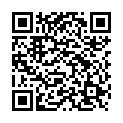|
|
|
| Module code: MAIM-332 |
|
|
- |
|
6 |
| Semester: 3 |
| Mandatory course: yes |
Language of instruction:
English |
Required academic prerequisites (ASPO):
Written examination or written examination + term paper with presentation |
Assessment:
[still undocumented]
|
MAIM-332 (P420-0277) International Management, Master, ASPO 01.10.2012
, semester 3, mandatory course
|
|
The total student study time for this course is 180 hours.
|
Recommended prerequisites (modules):
None.
|
Recommended as prerequisite for:
|
Module coordinator:
Prof. Dr. Leonhard Firlus |
Lecturer:
Prof. Dr. Leonhard Firlus
[updated 07.01.2016]
|
Learning outcomes:
- The students are able to explain the creation of a simultaneous equilibrium on money and foreign exchange markets and analyze the effects of data changes.
- They can explain in detail and evaluate the possibilities and limits of an expansionary demand policy under flexible and fixed exchange rates.
- They can explain the positive welfare effects (gains from trade and gains from specialization) of international trade.
- They can explain the effects of customs duties and regional free trade agreements.
- They are able to name and evaluate the central economic problems in developing countries.
[updated 07.01.2016]
|
Module content:
- International trade theory and policy
- International monetary theory
- The macroeconomics of open economies
- Economics of the European Union
- Economics of developing countries
[updated 07.01.2016]
|
Teaching methods/Media:
The module consists of a lecture and group work and requires a large amount of student participation. The students must write and present papers on selected international economics topics. Term papers may be required depending on the size of the groups.
[updated 07.01.2016]
|
Recommended or required reading:
- Feenstra, Robert C. and Alan M. Taylor: International Economics. Worth Publishers, New York, newest edition.
- Jones, Robert A. The Politics and Economics of the European Union. Edward
Elgar Publishing, Cheltenham, newest edition.
- Krugman, Paul / Obstfeld, Maurice: International Economics. Addison-Wesley,
Reading Mass., newest edition.
- Meier, Gerald M. / Rauch, James E.: Leading Issues in Economic Development.
Oxford University Press, Oxford, newest edition.
- Salvatore, Dominick: International Economics. John Wiley & Sons Inc., New
York, newest edition.
[updated 07.01.2016]
|


